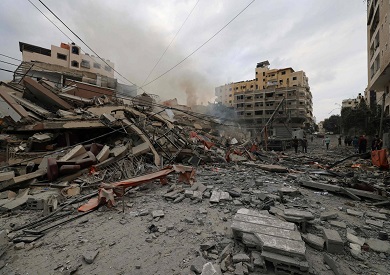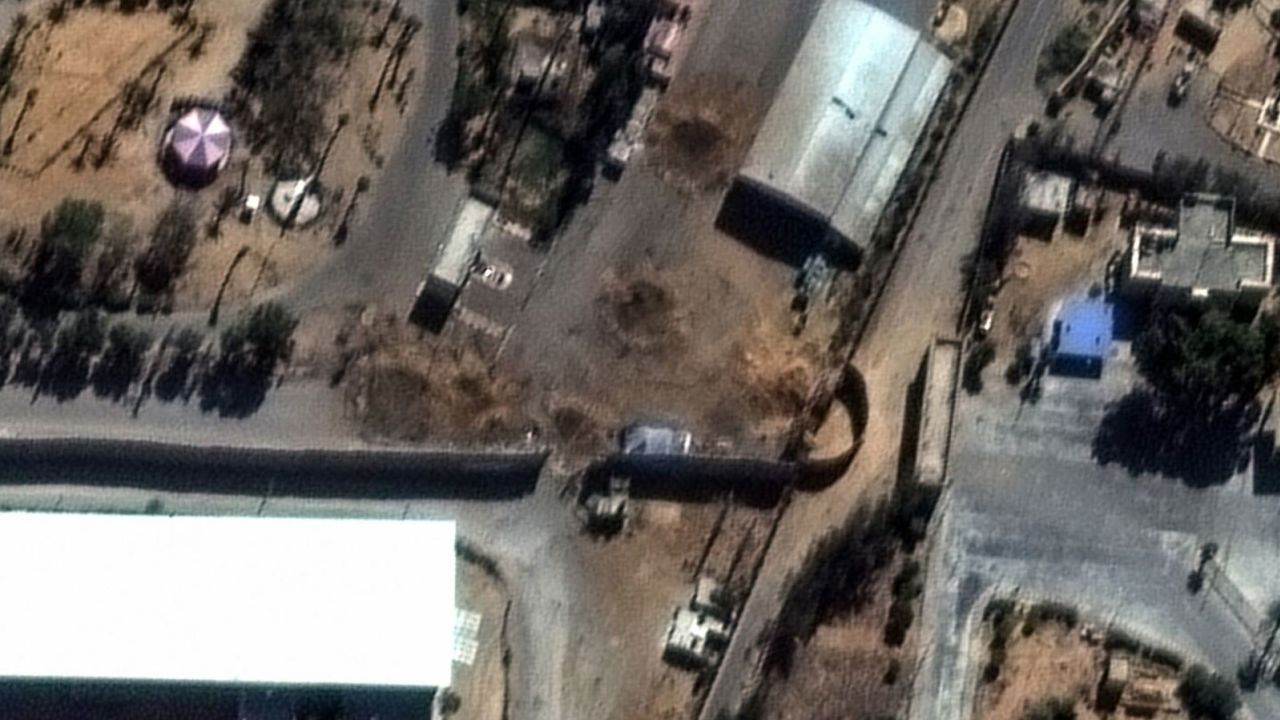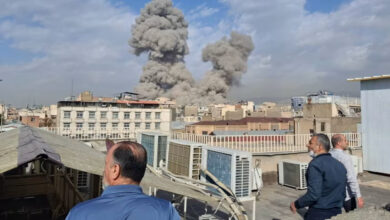
Gaza has been under siege by Israel for for more than a week, in response to the deadly incursion by Hamas, the Islamist militant group that controls the coastal enclave, home to 2.2 million people.
Some are gathering at the Rafah crossing between Egypt and Gaza hoping to leave, as critical supplies like fuel, food and water run short, leaving hospitals on the brink of collapse and families facing dehydration and starvation.
Amid growing international pressure to address the humanitarian crisis, United States President Joe Biden will arrive in Israel on Wednesday, an extraordinary wartime visit that follows frenzied efforts by Secretary of State Antony Blinken across the Middle East – including a seven-hour negotiation session with top Israeli officials.
On Tuesday, Blinken announced that the US and Israel “have agreed to develop a plan that will enable humanitarian aid from donor nations and multilateral organizations to reach civilians in Gaza.”

However, it is unclear if any progress was made on the opening of the Rafah crossing, the only entry point to Gaza not controlled by Israel.
A Palestinian border official told CNN on Saturday that concrete slabs had been placed at the crossing, blocking all gates; Egypt, meanwhile, claims that Israeli airstrikes on the Gaza side of the border have made roads inoperable.
Satellite images provided by Maxar Technologies show four 30-foot (9-meter) craters still blocking the roadway at the border crossing closest to the Egyptian gate; the cement slabs blocking the entrance are also visible in the photos.
Water warnings
Urgent calls for help are growing on both sides of the border.
On the Egyptian side, United Nations teams are waiting at the Rafah crossing, hoping they will be given the green light to enter Gaza and open a humanitarian corridor.
In a social media post Monday, the World Health Organization (WHO) warned that Gaza faces an “imminent” public health crisis, with water running out and the lives of more than 3,500 patients in 35 hospitals at immediate risk.
WHO spokesperson Margaret Harris told CNN the UN health agency had struck an agreement with Egypt’s president to open the Rafah crossing for aid – but Israel’s strikes rendered the facility unsafe, thereby halting the movement of crucial supplies.
“It’s a terrifying, really distressing waiting game, with all of us only wanting to help,” Harris said, adding there are about 84,000 pregnant women in Gaza, with many delivering every day.
“Babies don’t care about bombs, they come when they come,” she said.
UN humanitarian envoy Martin Griffiths is expected to travel to Cairo on Tuesday to aid diplomatic efforts, according to a release from the UN Office for the Coordination of Humanitarian Affairs. His trip will include a visit to Israel.
A convoy of trucks carrying aid supplies was traveling through Egypt toward the crossing early Tuesday, according to state-affiliated media outlet Al-Qahera News. Much of the aid already arrived days ago, sent by multiple countries and international organizations.
And on the Gaza side, large numbers of evacuees have gathered by the crossing, part of the mass migration that has seen at least a million people flee their homes in the past week alone, according to the United Nations Relief and Works Agency (UNRWA).
One family of five Palestinian-Americans, all US citizens, drove to Rafah on Monday after hearing the borders would be opened, said Haifa Kaoud, whose husband Hesham is among the five stuck in Gaza.
“They drove down to Rafah on Monday and waited for hours, but it never opened,” she said, adding: “They don’t have much electricity or internet access, so they depend on us for information.”
The family had been visiting relatives in Gaza when the war broke out; now, their loved ones in the US are desperately trying to find ways to bring them home.




